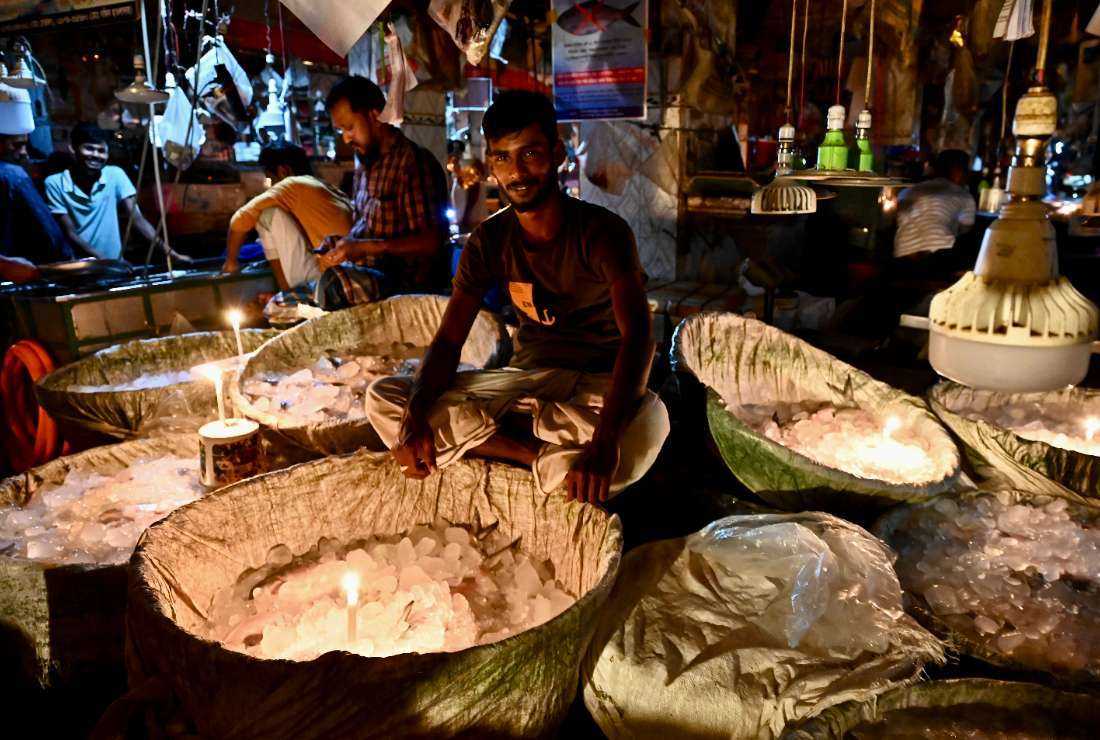The South Asian nation is struggling with a depreciating currency, foreign exchange reserves, and record-high inflation

Vendors use candles at a fish market during a power blackout in Dhaka on Oct. 4, 2022. This year the 1,320-megawatt government-run Payra Power Plant in southern Bangladesh has been shut amid a surging electricity demand due to a sweltering heatwave. (Photo: AFP)
Cash-strapped Bangladesh shut its biggest power plant Monday because it was unable to afford the coal to fuel it, as a sweltering heatwave creates surging electricity demand.
The 1,320-megawatt government-run Payra Power Plant in southern Bangladesh had already slashed production last month due to fuel shortages, but it was forced to go a step further on Monday, manager Shah Abdul Mawla told AFP.
“Due to the coal shortage, the plant came to a complete shutdown at 12.15 pm today,” Mawla said, adding that he hoped production could be restored within three weeks when coal shipments arrived.
Bangladesh is struggling against a depreciating currency, with foreign exchange reserves slumping from $46 billion in January last year to $30 billion at the end of April this year.
The official inflation rate is around 9.9 percent, but independent economists say the real figure is substantially higher.
The country has faced nationwide blackouts of up to five hours a day in recent weeks as a heatwave sweeps across the country, creating surging demand for power.
Bangladesh recorded a temperature of 41.1 degrees Celsius (106 degrees Fahrenheit) on Monday, with the government closing primary schools until Thursday in a bid to combat the heat.
Power Grid Company of Bangladesh spokesperson ABM Badruddoza Khan said the country had experienced a “2,500 MW shortage of electricity in the national grid”, compared to 2,200 MW a day earlier, with the daily demand of around 16,000 MW.
Minister for Power Nasrul Hamid said he hoped to normalize the situation within 10 to 15 days.
“We can’t provide coal, gas and fuel sufficiently,” he told reporters, blaming “economic factors” including securing letters of credit.
The Bangladeshi taka depreciated about 25 percent against the US dollar last year, driving up the cost of fuel imports and power utilities.
Last February, the International Monetary Fund signed off on a $4.7 billion support package for Bangladesh.

